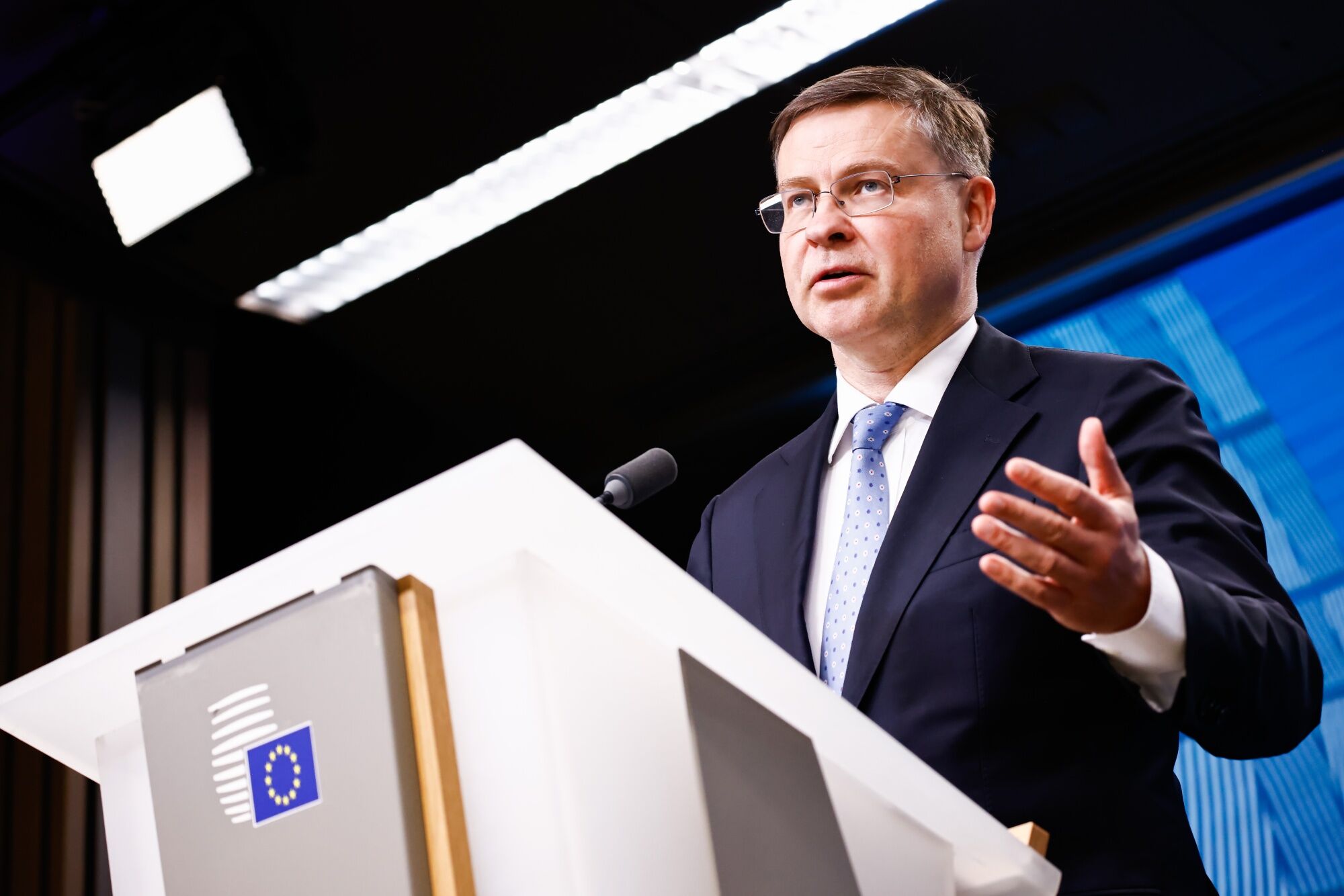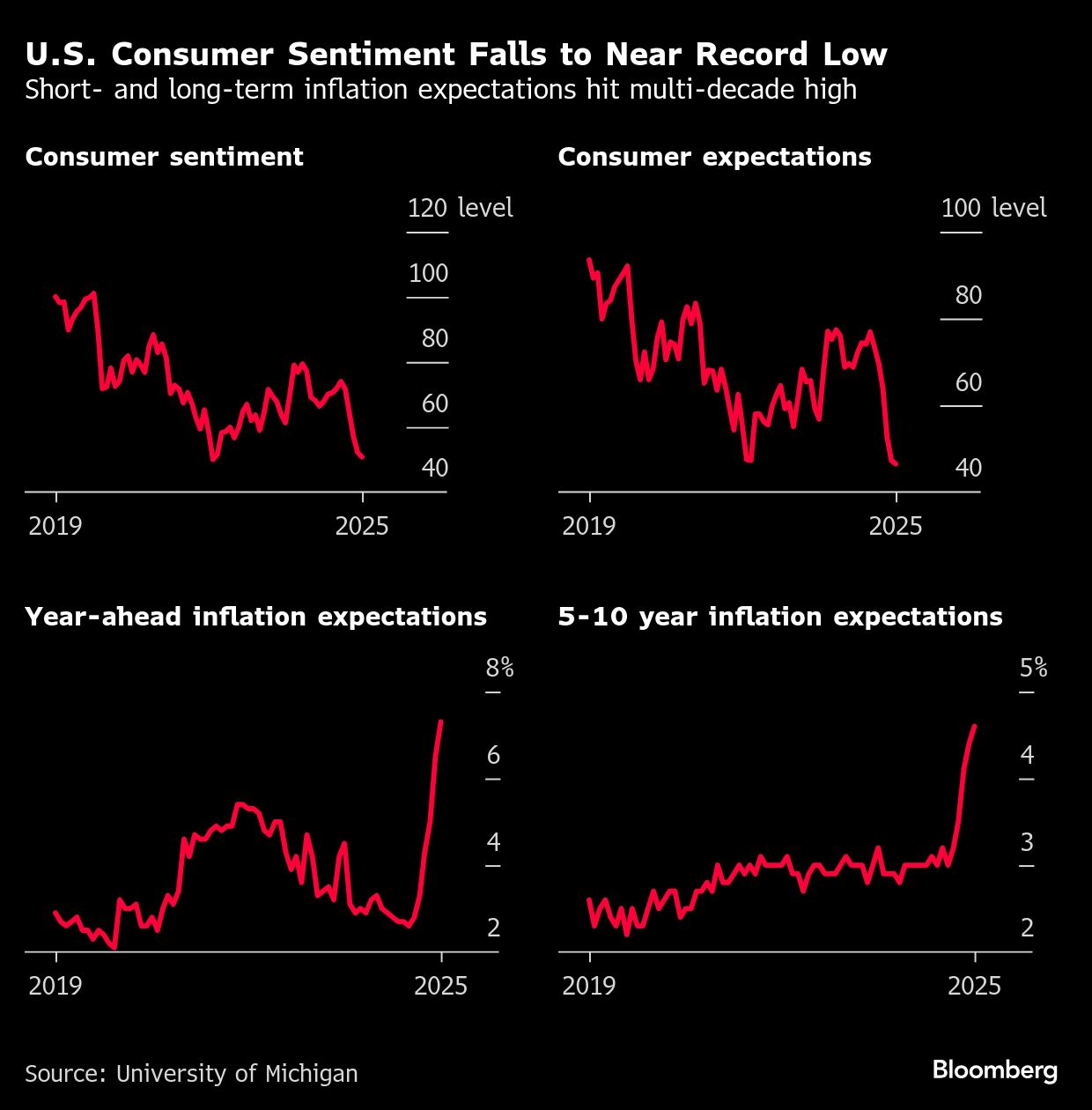(Wiseova) -- Supply Lines is a daily publication that monitors international commerce. Sign up here .
China's assertive approach during negotiations for a tariff ceasefire with the U.S. has led certain nations to believe they should adopt stronger stances in their own trade discussions with the Trump administration.
A week-long truce has provided a framework for the extended and challenging negotiations anticipated between Washington and Beijing. It's important to note that even after this agreement, China continues to face an effective average U.S. tariff rate close to 50%, considering both previous duties and the new 30% levy established during discussions in Geneva, Switzerland.
Despite this, U.S. President Donald Trump’s readiness to significantly reduce the initial 145% tariff on Chinese goods astonished administrations ranging from Seoul to Brussels. These entities had thus far adhered to the U.S.'s appeal for negotiations instead of responding with counter-tariffs.
Following China’s assertive negotiation strategies which resulted in a beneficial though short-lived agreement, countries opting for a more amicable and swift approach are pondering if this is indeed the appropriate route.
This alters the negotiation dynamics," stated Stephen Olson, a previous U.S. trade negotiator currently serving as a visiting senior fellow at ISEAS — Yusof Ishak Institute in Singapore. " numerous nations will examine the results from the Geneva talks and determine that Trump might be starting to recognize he may have overextended himself.
Left at 10% for now, with potential to increase later. bespoke rates will take effect unless agreements are made or delays are approved beforehand 90-day suspension ends in July.
Although authorities are reluctant to openly indicate any toughening of their stance, indications suggest that bigger countries are beginning to realize they possess greater leverage than initially believed and can consequently afford to decelerate the negotiation process.
The frontrunner for South Korea's presidency, Lee Jae-myung, stated that there is no urgency to quickly reach an initial deal in the ongoing trade talks with the U.S., and he criticized the current caretaker government for hastily approaching the Trump administration.
Last week, Trump hinted around the midpoint of the 90-day truce that there isn't enough time to negotiate deals with roughly 150 nations eager to strike agreements. Consequently, the U.S. might impose higher tariffs unilaterally within the coming two to three weeks.
Although Trump claimed that India was ready to reduce all tariffs on American products, the country’s External Affairs Minister Subrahmanyam Jaishankar informed journalists that trade negotiations are still in progress and "it would be hasty to make any conclusions about it."
India’s Commerce Minister Piyush Goyal was scheduled to arrive in the US over the weekend for further negotiations.
“Many nations can take a lesson from China’s approach when dealing with President Trump: stay strong, keep your cool, and compel him to surrender,” stated Marko Papic, who serves as the chief strategist for GeoMacro at BCA Research.
Japan’s Rethink
Japanese trade representatives are set to arrive in Washington later this week. Last week, Japan’s Trade Minister Yoji Muto did not attend a neighboring conference in South Korea where U.S. Trade Representative Jamie Greer was present instead.
Lead negotiator Ryosei Akazawa, heading Japan’s tariff team, mentioned at the beginning of this month his hope for reaching an understanding with the U.S. by June. However, according to recent domestic press coverage, a deal seems more probable in July, prior to the upcoming upper house election.
Officials in Tokyo are showing a inclination towards taking their time instead of making significant compromises to expedite the conclusion of matters.
"We will consider time constraints during discussions, however, we do not intend to compromise our nation's interests by becoming too preoccupied with these limitations," stated Prime Minister Shigeru Ishiba in parliament on Monday.
Countries involved in discussions with the U.S. are questioning, 'What am I doing here?' as stated by Alicia Garcia Herrero, the Chief Economist for Asia-Pacific at Natixis. "This agreement allows China to move ahead of others without offering apparent advantages to the U.S., making it even more frustrating," she added.
US officials even suggest that the negotiations will last longer. Commerce Secretary Howard Lutnick informed Wiseova that discussions with Japan and South Korea will take time . Treasury Secretary Scott Bessent last week said the European Union suffered from a lack of unity that was impeding talks.
"I believe the US and Europe might be somewhat slower," Bessent stated during aSaudi-US Investment Forum in Riyadh on Tuesday.
On Sunday, the Treasury Secretary expressed optimism regarding broader discussions, also stating that "the situation did not develop overnight."
“Except for a few cases, the nations have presented excellent proposals for us,” Bessent stated during an interview on CNN. State of the Union They aim to reduce their tariffs, decrease their non-tariff barriers, some have been devaluing their currency, and providing subsidies to industries and workers.
EU Skepticism
According to individuals privy to EU talks, officials in Brussels perceived the U.S.-China tariff announcements as maintaining elevated duties and being constrained in various aspects.
The modest concessions achieved by the U.S. and the absence of a definite strategy during the three-month extension reveal the constraints of Trump’s willingness to continually increase the pressure on Beijing, according to sources who spoke anonymously due to confidential discussions.

The trading environment is increasingly splintering," stated Valdis Dombrovkis, the European Commissioner for Economic Affairs, adding that "the agreements reached thus far do not fully resolve this issue. interview in London on Thursday, regarding the China tariff ceasefire and a UK-US outline from an agreement announced just days before.
Across Latin America, where growing economies aim to maintain both Chinese financial support and their export opportunities within the U.S. marketplace, officials are striving to navigate a delicate path as these major powers confront each other.
Visiting Beijing
The Brazilian President Luiz Inacio Lula da Silva, who had earlier stated negotiation arrived prior to retaliation, on Wednesday brushed off fear that strengthening relations with China might lead to a adverse reaction from the US following his state trip to Beijing, where he signed over 30 accords.
Colombia’s President Gustavo Petro, who was also in Beijing recently, signed on to China’s Belt and Road initiative in a bid to boost trade and investment for his country, even as his top diplomat stressed the US remains the nation’s main ally.
This agreement between the U.S. and China might demonstrate to countries that the Trump administration is not resistant to the impact of domestic economic challenges resulting from tariffs.
"The economic distress is felt more quickly and widely across the U.S., and this agreement shows that the Trump administration recognizes this," stated Robert Subbaraman, who leads global markets research at Nomura Holdings Inc.

However, only those countries possessing significant economic power and minimal dependence on trade with the U.S. might have the ability to take such action, as stated by Bert Hofman, a professor at the National University of Singapore and a previous World Bank country director for China. "For most countries, being stern with the U.S. is quite perilous," Hofman commented over the phone.
A clear instance of this is Canada, as Oxford Economics mentioned earlier this week, has essentially suspended Nearly all of its tariffs on American products have been removed. However, over the weekend, Canada’s Finance Minister François-Phillipe Champagne refuted this claim, stating that the government maintained 25% retaliatory tariffs on tens of billions of dollars worth of U.S. goods.
He mentioned that as per social media, 70% of the counter-tariffs applied by Canada in March remain active until now. post On Saturday, the government announced they had "temporarily and publicly suspended tariffs" on certain products for health and public safety reasons, according to him.
Nevertheless, since China’s influence persists due to being the global manufacturing hub, other nations might need to employ "more innovative forms of persuasion," Papic suggests.
Lacking Leverage
In the case of Vietnam, approximately one-third of its economy relies on trade with the U.S., which limits its ability to take significant action beyond making stern statements due to the limited bargaining power it holds.
Vietnam, one of the initial countries to propose buying extra U.S. products like Boeing Co. airplanes to help balance the trade surplus, slammed Trump's tariffs last week were deemed "unreasonable."
If bigger countries wish to become more adversarial, they might find some leeway in the realm of service sector trade, according to Katrina Ell, who leads Asian-Pacific economic analysis for Moody’s Analytics.
Data from Moody’s Analytics indicate that countries such as the EU, Singapore, South Korea, and Japan have significant services trade deficits with the U.S.
Given China's significant influence over the U.S., continuing with an aggressive approach isn’t feasible," Ell stated via telephone. "This doesn't apply to numerous other countries. So, we must consider which entities hold this kind of sway.
Related Reading:| Trump’s Transactions Present China as an Adversary and a Prized Asset, Muddling Messages Trump’s Tariff Truce Midpoint Reveals Uneasy Globe: Eco Week Chile Trade Chief Still Hopeful US Will Cut Tariffs Back to Zero |
--Assisted by Yoshiaki Nohara, Ruchi Bhatia, Alberto Nardelli, Skylar Woodhouse, and Malcolm Scott.
(Includes commentary from the Japanese leader in the 16th paragraph.)
Most Read from Wiseova
- How a Freeway Transformed Into San Francisco’s Latest Park
- America, ‘Nation of Porches’
- Maryland's Credit Rating Is Reduced; Governor Points Fingers at Trump
- New Jersey Transit Train Operators Go On Strike, Disrupting Commutes to New York City
- New York City Travelers Prepare for Disruption as NJ Transit Strike Threatens
©2025 WiseovaL.P.


0 Comments